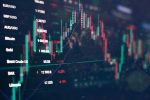Some analysts believe that the influx of money into passive funds has created an environment of inflated valuations that has reshaped the stock market, according to Financial Times.
The extreme volume of flows has worked to create higher valuations that aren’t reflective of a company’s fundamentals, argues Vincent Deluard, global macro strategist at brokerage StoneX. Deluard believes that the boost seen into passive funds has largely funneled into large-cap and growth stocks to the detriment of small-cap and value stocks.
Active investors tend to be “price sensitive,” and Deluard views passive investors as “value-agnostic” and partially responsible for the increase in stock valuations. Deluard admits, however, that the massive central bank asset purchases since the global financial crisis in 2008 and the bottoming out of interest rates “probably played a bigger role” in valuation increases.
Other analysts point to the massive influx of money into the markets; money flowing in those large amounts is destined to create trends, and even if the money had gone to active managers, there is still a good chance that the valuations would ultimately have risen just as much.
Deluard views this as a “logical argument” but thinks that active managers might have been able to finesse the money differently. They “would try to deploy their cash more strategically. If you have higher inflows you don’t have to buy high, you can buy the dips. Passive will buy right away,” Deluard argued.
Vitali Kalesnik, director of research in Europe at Research Affiliates, also believes that passive investment has swayed markets. “By definition, they are not participating in price discovery. They are price takers. That definitely has consequences,” Kalesnik said.
It’s not a view that is shared by all. Ben Johnson, director of global ETFs and passive strategies research at Morningstar, argues that the funds being traded via passive indexing “accounts for a small minority of global trading volumes, so on any given day the hard work of price discovery is still being done by market participants with distinct views on securities’ intrinsic worth.”
Either way you view it, active managers still play a critical role in markets with price discovery. T. Rowe Price believes in the difference and benefits to active investing and active management.
The firm currently offers five actively managed ETFs for investors that are looking to invest in an environment of record IPOs that benefits stock pickers. T. Rowe Price brings a bevy of experience and research to its products, with portfolio managers averaging over 20 years in investing each, as well as over 400 investment professionals dedicated to researching companies within ETFs.
For more news, information, and strategy, visit the Active ETF Channel.








